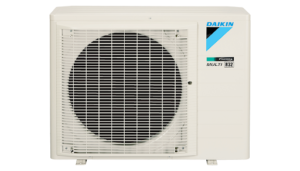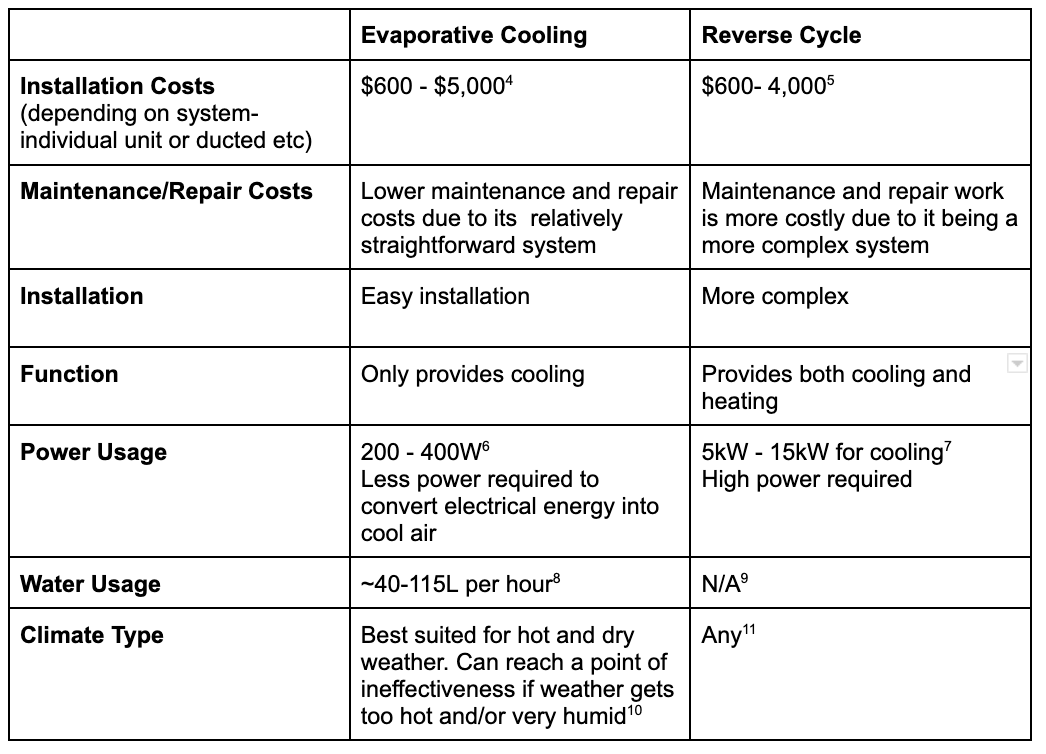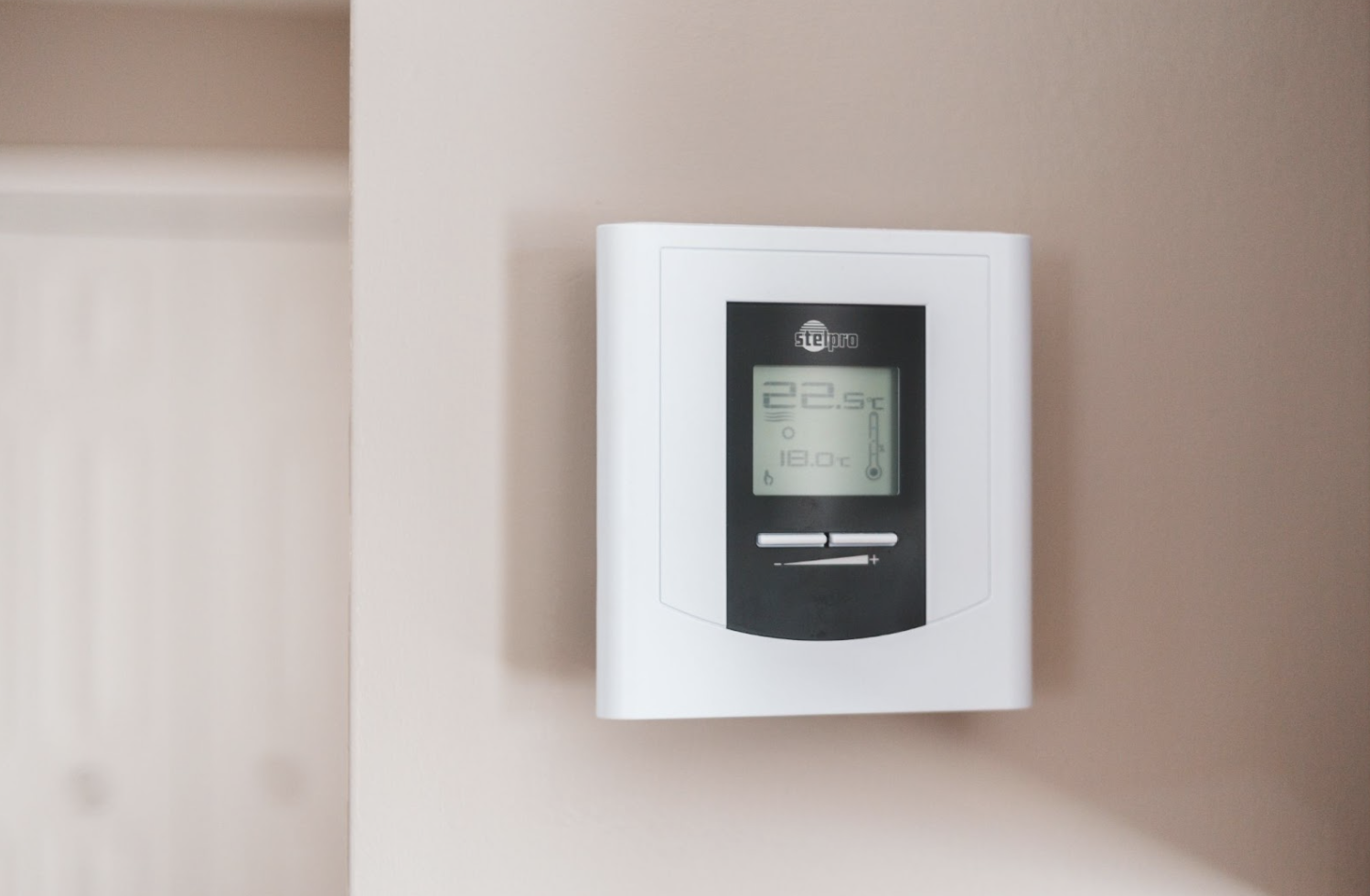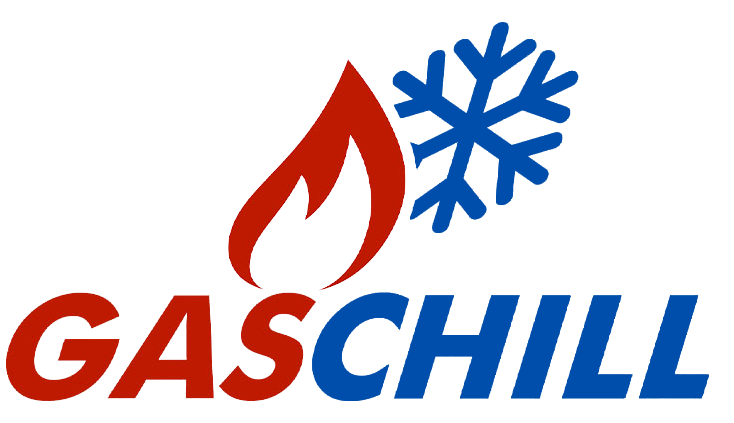When deciding on what type of air conditioner to purchase, it’s easy to get overwhelmed with the multiple options available. Not to mention the more technical factors to consider such as running costs or how much power you require for your space.
Evaporative coolers and reverse cycle air conditioners are both popular choices in Australia – but what are they really and how do you know which one is right for you?
We’ve broken down these two systems below and compared the pros and cons of each to help you decide on which one may be the better fit for you and your home.
1. Evaporative Cooling vs Reverse Cycle Air Conditioning – Which One Is Better?
Evaporative Cooling

As the name suggests, an evaporative cooler cools air through the evaporation of water. The key difference between evaporative cooling and air conditioning is that the former adds humidity to the air it blows out.
Because of this, evaporative cooling is preferred in drier climates such as in Perth or Melbourne. About 20% of households in Victoria have existing evaporative coolers with 60,000 units being sold every year.
A drawback of evaporative coolers is that it could put a dent in your water bills because it depends so much on water. But more on that later.
Reverse Cycle AC

Reverse cycle air conditioners are the most popular option amongst Victorians, with 60% of households using it due to its efficiency. This system uses the refrigeration cycle to provide either heating or cooling solutions.
Because of this, reverse cycle aircons are commonly used in countries with different seasons.
Reverse cycle ACs use heat pump technology, which typically uses more electricity. But this can be offset by using solar panels to provide energy.
2. Comparing Evaporative and Reverse Cycle Systems

3. How To Decide Which Is Best?
To decide on what system fits you and your home best, there’s a couple of key factors that you should be considering.
- Costs
- Climate Type
- Function- Heating/ Cooling
- Size of Space
Costs

While this depends on the system’s size, evaporative coolers tend to have higher upfront costs vs. reverse cycle air conditioners. But you will end up saving in the long run as evaporative coolers have lower running costs compared to reverse cycle air conditioners.
The reverse cycle consists of a more complex system as it has both heating and cooling functions. As such, it requires more parts to function and is why running costs are more expensive – there’s just more parts to take care of. Similarly, some of these parts can be quite expensive to replace if they break down.
Firstly, decide how much you’re willing or able to spend on a new system and work out what’s within your budget and go from there.
Climate Type

This next factor depends on the climate of your area. Evaporative cooling systems generally work best in moderately hot climates with low humidity while reverse cycle air conditioners are more flexible, providing effective cooling on days with temperatures up to 45 degrees.
In Melbourne for example, evaporative coolers will work just fine in spring and in the temperate parts of summer but may not prove effective on those really hot summer days and nights.
Evaporative coolers also require proper ventilation because it circulates fresh air from outside. The inflow of fresh air would make evaporative coolers the preferred option if anyone in your household has allergies or sensitivities to dust.
Function- Cooling/ Heating
Reverse cycle air conditioning is a flexible solution as it provides both heating and cooling from a single system. However, if you already have a heating system in place, this feature may not be what you’re looking for.
Size Of Space

To determine the size of reverse cycle air conditioner that you need for your home, refer to the following guide:
To determine the size of evaporative cooler you need for your space, you once again need to know the size of the area you’re looking to cool. A small sized home can work with a 5-10kW system but a larger home may need a 15-20kW ducted evaporative cooling system, which will cost you more.
The Moment of Truth
Deciding between the evaporative cooler or the reverse cycle air conditioner will depend on your specific needs. Keep in mind that just because reverse cycle air conditioners are the most popular option amongst Victorians, it does not necessarily mean that it is the best choice for your home.
If you’re looking to get a new system installed or get an existing one replaced OR maybe you’re still unsure how to decide, speak to an expert at Gaschill and find a tailored solution for your home.


